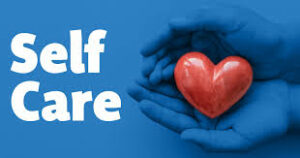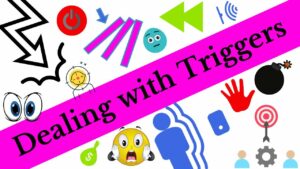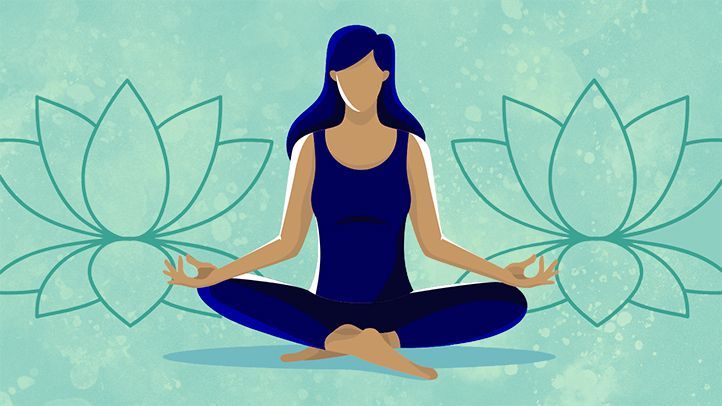Do you suffer from OCD symptoms? If so, you are not alone. OCD is a very common disorder, and there are many ways to treat it. In this blog post, we will discuss some of the best OCD self-treatment methods. We will also provide some tips for conquering your OCD symptoms. So if you are ready to start feeling better, keep reading!
Contents
How To Do OCD Self-Treatment?
 OCD is a serious anxiety disorder that can take over your life if you let it. Symptoms of OCD can be very intrusive and disruptive, making it hard to function in day-to-day life. However, there are things you can do to help ease your symptoms and regain control of your life.
OCD is a serious anxiety disorder that can take over your life if you let it. Symptoms of OCD can be very intrusive and disruptive, making it hard to function in day-to-day life. However, there are things you can do to help ease your symptoms and regain control of your life.
One way to ease your OCD symptoms is through self-treatment. This means taking care of yourself mentally and emotionally, as well as physically. Self-care and helping yourself are the primary focus of this type of treatment. There are many different ways to go about self-care. And, the methods you use may change over time as your needs change.
Here are some of the OCD self-treatment tips;
Educating yourself about OCD
When you are first diagnosed with OCD, it is normal to feel overwhelmed. There is a lot to learn and it can be hard to sort through all the information. A good place to start is by reading about OCD. This will help you understand your diagnosis and what you can do to treat your symptoms.
Understanding what you’re suffering from is a helpful first step in self-treatment for OCD. Once you know more about your disorder, you can start to develop a plan to ease your symptoms. And then, you can start to take steps to recovery. There are numerous books, articles, and websites that can provide you with information about OCD.
Support groups
Another helpful self-treatment for OCD is to join a support group. This can be an invaluable resource as you work to manage your symptoms. In a support group, you will meet other people who understand what you are going through. You can share your experiences and learn from others who have coped with similar challenges.
Additionally, being in a supportive environment can help reduce your stress levels and ease your anxiety. There are many different types of support groups available. You can find one that meets in person or online. In this way, you can get the support you need from the comfort of your own home. Moreover, support groups are often free or low-cost.
ERP And Awareness
ERP is Exposure and Response Prevention. In order to get better, we must do the things that make us anxious. This may seem counterintuitive, but it is essential for recovery. The goal of ERP is to learn that our anxiety will decrease on its own, without us needing to engage in compulsions.
It is also known as ERPA and the main focus of this treatment is on symptoms of OCD. There are four main steps in ERP:
- identifying the fear
- confronting the fear without engaging in compulsions
- remaining in contact with the anxiety-provoking stimulus until anxiety decreases on its own
- repeating this process until the anxiety no longer occurs or is greatly reduced
An important part of ERP is learning to tolerate discomfort. This may mean sitting with intense anxiety and the urge to compulsively for a period of time. It is essential to remember that the anxiety will eventually go down on its own, even if it feels like it’s never going to end.
The exercises of ERPA identify the triggers at first. Once the triggers are known, you can start to work on them. The goal is to get rid of the compulsions and learn to live with the anxiety. Although ERP takes time and effort, it is possible to conquer OCD symptoms without medications or other medical interventions.
Challenging Your Thoughts
 However, this step is not as simple as it sounds. In order to effectively challenge your thoughts, you need to be able to catch them first. It is often followed by ERP exercises as this is the most effective OCD self-treatment.
However, this step is not as simple as it sounds. In order to effectively challenge your thoughts, you need to be able to catch them first. It is often followed by ERP exercises as this is the most effective OCD self-treatment.
Challenging your thoughts is a process of learning to question the validity of your thoughts and ultimately learning to see them as nothing more than thoughts, not reality. It is important to remember that just because you have a thought, doesn’t mean it is true. In fact, many of our thoughts are actually based on myths or misconceptions that we have about ourselves, others, and the world around us.
For example, one common myth that people with OCD tend to believe is that if they don’t do their compulsions, something bad will happen. This may be a fear of getting sick, harming others, or causing some sort of disaster. However, the reality is that these things are highly unlikely to happen and the anxiety you feel is actually caused by your OCD.
Self-Relaxation Techniques
Self-relaxation techniques are an important part of any OCD self-treatment plan. They can help you manage your anxiety and cope with obsessions and compulsions. There are many different types of self-relaxation techniques, so it is important to find one that works best for you. Some common self-relaxation techniques include:
- Deep breathing exercises
- Progressive muscle relaxation
- Guided imagery
- Mindfulness meditation
Deep breathing exercises involve taking slow, deep breaths and focusing on the sensation of the breath entering and leaving your body. Progressive muscle relaxation involves tensing and relaxing different muscle groups in your body. Guided imagery involves picturing a peaceful scene or situation in your mind. Mindfulness meditation involves focusing on the present moment and accepting whatever thoughts and feelings you have without judgment.
Self-relaxation techniques can help you to reduce anxiety, manage obsessions, and cope with compulsions. Finding the right technique for you may take some trial and error, but it is worth the effort to find something that works for you. Give yourself some time to relax each day, even if it is just for a few minutes.
Practice Healthy Habits
Healthy habits are always important, but they are especially crucial when you’re dealing with OCD. Eating right, getting enough sleep, and exercising will help your body and mind to be stronger and better able to cope with stress.
Additionally, these healthy habits can help to reduce the severity of your OCD symptoms. For example, if you’re struggling with intrusive thoughts, getting enough sleep can help to reduce the number of times these thoughts enter your mind.
Moreover, exercise releases endorphins, which have mood-boosting properties. So, if you’re feeling down about your OCD, a healthy lifestyle can help to improve your mood and outlook. Of course, developing and maintaining healthy habits can be difficult, especially when you’re dealing with OCD.
But it’s important to remember that even small changes can make a big difference. So don’t get discouraged – keep up the good work!
Get Rid Of Your Triggers
 Triggers in OCD can be anything that sets off your obsessions or compulsions. To get rid of triggers, you need to identify them first. Once you know what your triggers are, you can start to work on getting rid of them. There are things you can do to get rid of triggers, but it will take some time and effort.
Triggers in OCD can be anything that sets off your obsessions or compulsions. To get rid of triggers, you need to identify them first. Once you know what your triggers are, you can start to work on getting rid of them. There are things you can do to get rid of triggers, but it will take some time and effort.
You may need to change your routine, avoid certain places or things, or even get rid of some of your belongings. It may seem like a lot of work, but it’s worth it if it means you can live a life free from OCD. If you’re not sure what your triggers are, keep a journal for a week or two and write down when you feel the urge to perform a compulsion or have an obsessive thought.
Once you’ve identified your triggers, you can start working on getting rid of them. If you have OCD, self-treatment is possible and there are many resources available to help you conquer your symptoms.
Seek Support From Your Loved Ones
It is important to have a support system for loved ones to help you through your battle with OCD. They can provide encouragement and motivation when you are struggling. Additionally, they can offer helpful advice and perspective on your situation. Talking to someone who understands what you are going through can be incredibly helpful.
More often than not, people with OCD are aware that their thoughts and behaviors are irrational. However, they feel powerless to stop them. If you find yourself in this position, it is important to seek professional help. A therapist can help you understand your condition and develop a treatment plan to manage your symptoms.
Your loved ones can be a great source of support, but ultimately you are the one who has to live with OCD. It is important to find what works for you and stick with it. There will be setbacks, but don’t let them discourage you. Persevere and you will eventually conquer your OCD symptoms.
What Are The Benefits Of OCD-Self-Treatment?
 If you choose OCD self-treatment, then there are several benefits that you can reap. So, these include;
If you choose OCD self-treatment, then there are several benefits that you can reap. So, these include;
When you are doing OCD self-treatment, you will be in complete control of your treatment. You will also save money because you will not need to see a therapist or psychiatrist. OCD self-treatment is also convenient because you can do it at home, on your own schedule.
One of the most important benefits of OCD self-treatment is that it can help you develop a stronger understanding of your thoughts and feelings. When you are in control of your treatment, you can experiment with different techniques and strategies until you find what works best for you. This process can help you develop a better understanding of yourself and your OCD.
Another benefit of OCD self-treatment is that it can help build confidence. When you are successful in treating your OCD symptoms, it can give you a sense of accomplishment. This can help increase your self-esteem and confidence.
OCD self-treatment can also help you form positive coping mechanisms. When you are able to effectively manage your OCD symptoms, it can help reduce the negative impact that OCD has on your life. It can also help you learn how to better cope with stressful situations in the future.
Overall, there are many benefits that come with choosing OCD self-treatment. If you are considering this option, then be sure to weigh the pros and cons carefully. Ultimately, the decision is up to you and what you feel comfortable with. However, if you do choose OCD self-treatment, then there are many wonderful benefits that you can reap! So, don’t hesitate to give it a try.
Are There Any Risks Of OCD Self-Treatment?
OCD self-treatment is thought to be one of the safest methods of treatment. However, there are a few risks that should be considered when thinking about self-treating your OCD.
- One risk is that you may not be correctly diagnosing yourself and may actually have another disorder or condition. It is important to get a professional evaluation to rule out other possible causes of your symptoms before beginning any type of self-treatment.
- Another risk is that you could make your OCD worse by using suggested techniques incorrectly. Make sure to do research and talk to your therapist about how to properly use OCD self-treatment methods.
- Finally, it is important to remember that OCD self-treatment will not work for everyone. If you have tried multiple methods with no success, it may be time to seek professional help.
If you are considering OCD self-treatment, it is important to weigh the risks and benefits before making a decision. While there are some risks associated with self-treatment, it is often thought to be a safe and effective method of treatment for many people.
Be sure to do your research and talk to your therapist before beginning any type of self-treatment for OCD. More often than not, self-treatment can be a successful way to conquer OCD symptoms. It is also important to remember that if self-treatment does not work for you, professional help is always available.
Conclusion
To conclude, OCD self-treatment is not only possible but can be highly effective. The first step is to seek professional help in order to create a customized plan that will work for you. From there, it is important to be patient and consistent with your treatment plan. Remember that OCD is a lifelong battle, but with the proper tools and support, it can be managed effectively.
Self-treatment for OCD requires work and dedication, but it is possible to see significant improvements in your symptoms. If you or someone you know is struggling with OCD, don’t hesitate to reach out for help. Moreover, if you are unable to help yourself, please ask for professional help. There are many resources available to those struggling with OCD, and treatment can make a world of difference.
A Word From Mantra Care
Your mental health — your psychological, emotional, and social well-being — has an impact on every aspect of your life. Positive mental health essentially allows you to effectively deal with life’s everyday challenges.
At Mantra Care, we have a team of therapists who provide affordable online therapy to assist you with issues such as depression, anxiety, stress, relationship, OCD, LGBTQ, and PTSD. You can take our mental health test. You can also book a free therapy or download our free Android or iOS app.


